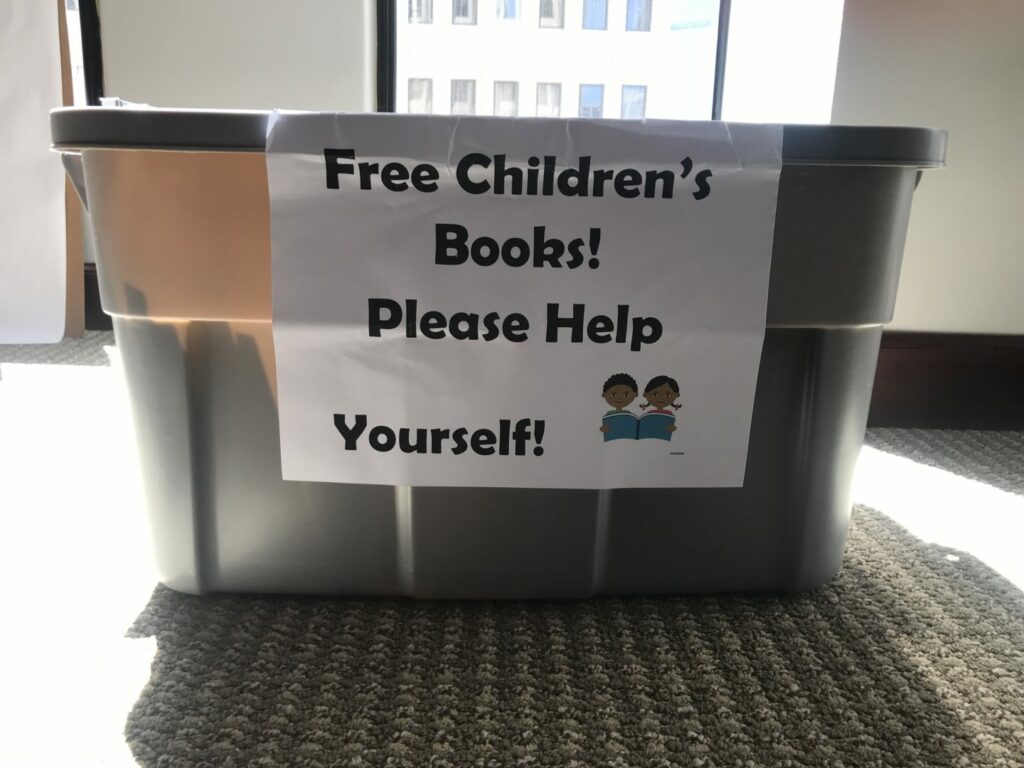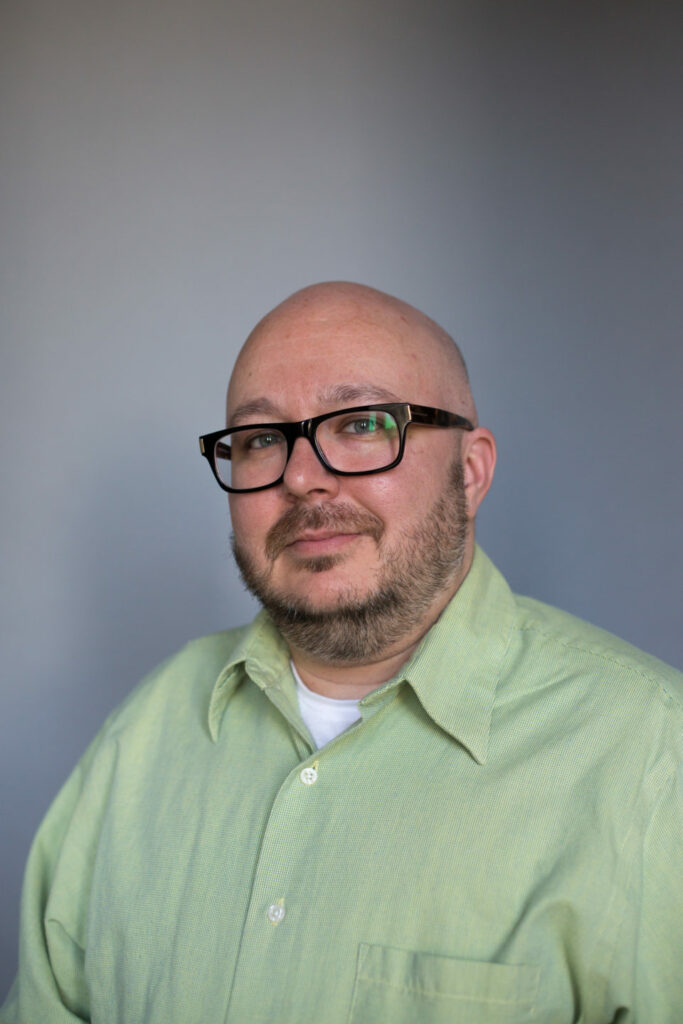COLE THALER | April 12, 2018
AVLF distributes children’s books during every Saturday Lawyer Clinic, where volunteer attorneys meet with clients about housing and employment issues. The reason why might surprise you.
 Close your eyes for a moment and think about the books you loved as a child.
Close your eyes for a moment and think about the books you loved as a child.
What authors come to mind: Dr. Seuss? Beverly Cleary? Roald Dahl?
If you were like me, reading was an ever-present part of life, from Little Golden Books to Choose Your Own Adventure books, from Richard Scarry to Judy Blume. Certain books were particularly magical, helping me escape a financially struggling home for other worlds using only my imagination. I especially remember Norton Juster’s The Phantom Tollbooth and Astrid Lindgren’s The Brothers Lionheart as having that power.
I was such a bookworm that I spent every lunch period, through high school, with a book open on my lap. I remember getting so engrossed in books that I would even read while walking to school, holding the book up in front of my face and trying not to stumble. The librarians knew me by name. My house was filled with overflowing bookshelves.
Once I started working with deeply impoverished clients in Georgia, it didn’t take me long to notice that their budgets – stretched to the breaking point for the bare necessities – often didn’t have room for trips to the bookstore. And so many of the families AVLF represents also suffer from a poverty of time: between rushing from one job to another, or to catch one bus and then another, leisurely trips to the library are a luxury that our clients’ lives often do not permit.
When, for example, their landlord breaks the law and pushes the family into a crisis, immediate needs like food, shelter, and utility bills take priority. Pleasure reading does not.

Children living in poverty suffer from a reading deficit compared to their higher-income peers: 80 percent of children in low-income families are below proficiency in reading, compared with 49 percent of higher-income children.
So it’s not surprising that children living in poverty suffer from a reading deficit compared to their higher-income peers. According to research from the Annie E. Casey Foundation, 80 percent of children in low-income families are below proficiency in reading, compared with 49 percent of higher-income children.
This literacy disparity can have life-long consequences. Kids who are not at least moderately-skilled readers by the end of third grade are significantly less likely to graduate from high school.
Those with poor literacy skills are also less likely to be ready for careers or college. They face decreased lifetime earning potential. They are more likely to suffer poor health and less likely to vote.
Atlanta Volunteer Lawyers Foundation is not a literacy nonprofit, but we saw an easy way to help our clients level the literacy playing field. At every Saturday Lawyer Clinic, we give away unlimited free children’s books to our clients. The books come from neighborhood donations, library book sales, and our staff. We give away AVLF tote bags and encourage the clients in our waiting room to fill up a tote bag with books before they leave. And our clients gratefully help themselves – by the arm-full. It is common for the entire book bin to be emptied out on a Saturday morning. If you’ve got new or gently-used children’s books to donate, we would be thrilled to accept them.
AVLF is a legal nonprofit, and our focus will always be on providing our clients with the best free legal representation that money can’t buy. But along the path, we can help our clients’ children dream big, using only their imaginations and the power of a good book.
AVLF might be a legal nonprofit, but we are always trying to address all of our clients’ needs–whether they’re legal or not. Want to know more? Sign-up for our newsletter today.

Cole Thaler
Director, Safe & Stable Homes Project
Check out more from this author.
Cole serves as the director of AVLF’s Safe and Stable Homes Project. He oversees the Saturday Lawyer Program and the Standing with Our Neighbors Program, among others.
Before joining AVLF, Cole was a supervising staff attorney with Georgia Legal Services Program, where he represented low-income rural Georgians in a variety of civil matters. Previously, Cole worked for Lambda Legal, a national legal organization that works on behalf of lesbians, gay men, bisexuals, transgender people, and those with HIV. Cole attended Williams College before receiving his J.D. from Northeastern University School of Law. He shares his home with two rescue dogs, three rescue cats, and husband.